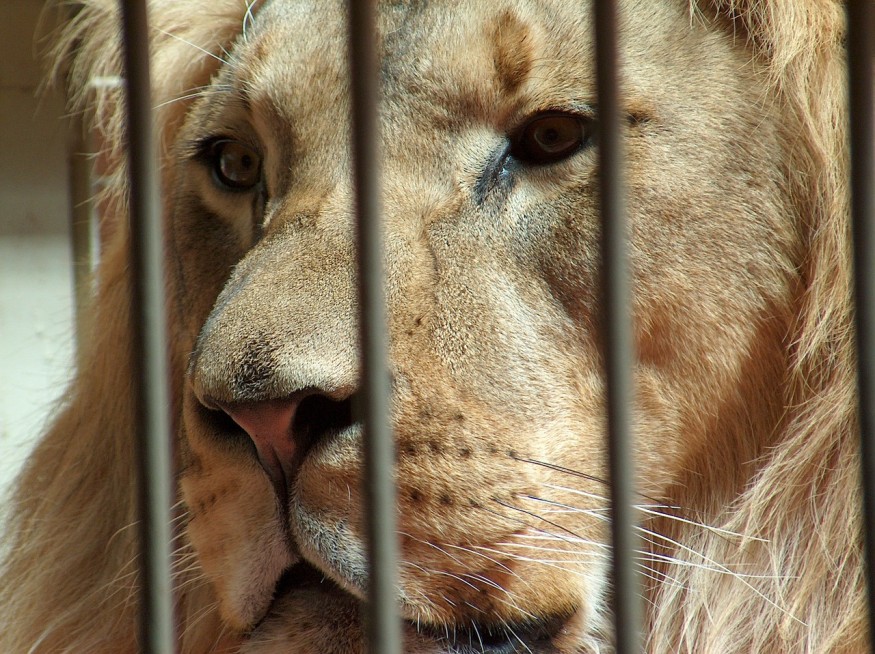
Lions are leading an interesting life while the world is on lockdown: a pride was spotted feasting on a pregnant giraffe in South Africa's Kruger National Park, while a few months ago, several lions were spotted napping on a typically busy road. Kruger Park has been closed to tourists since the COVID-19 nationwide lockdown. Meanwhile, conservation groups fear that captive-bred lions in South Africa are being starved and maybe euthanized as tourism has tremendously declined since the coronavirus pandemic.
View this post on InstagramWe all heard about the lions on the giraffe kill this week near Crocodile Bridge on the S25. It turns out the giraffe was pregnant and you can see the lion pulling out the fetus. Even though it's graphic, it is nature. #Tingedby @foxycrocodilebushretreat Full video, link in bio (https://bit.ly/LionPullsGiraffe) Tags: #Nature#travel#vacation#view#adventure#outdoors#explore#lucky#wilderness#Tourist#Visiting#animal#camping#wild#africa#wildlife#safari#Kruger#Exploring#giraffes#hyena#videos #viral #gitaffe #lions #video #lion A post shared by Latest Sightings - Kruger (@latestkruger) on Jun 16, 2020 at 3:59am PDT
An interesting fact is female lions hunt for the pride and work closely with hunting parties to take down the prey. Occasionally, males join the hunting party, especially if prey are gigantic like elephants or giraffes, but most often, male lions are expected to protect the pride.
A viral post from Kruger Park last April also featured lions sleeping on the road in Kruger Park, oblivious of the world as tourists have died down due to nationwide stay at home order to curb the coronavirus pandemic.
But not all lions are happy with the lack of tourists during the worldwide pandemic lockdown.
In South Africa, conservation groups fear that captive-bred lions are in danger of starvation or euthanization as tourism has tremendously declined due to measures to curb the coronavirus.
Captive breeding of lions has become a controversial issue in South Africa. These facilities raise lions in captivity to provide the tourism experience: "cub-petting," "walking with lions," and other them-park-like experience.
But these lions are also sold to wealthy-big game hunters for trophy hunting. When these lions are killed, lion body parts such as bones, blood, and other body parts are sold to countries for traditional medical products.
One danger is that captive-bred lions are susceptible to infectious diseases: they have known to harbor bovine tuberculosis, which can also be transmitted to humans. These lions are also vulnerable to other infectious diseases among lions such as the feline immunodeficiency virus (FIV), which can be transmitted to gorillas.
Wildlife conservation organizations have been calling for the closure of these captive breeding facilities due to these inhumane practices.
The EMS Foundation, one of the organizations leading the campaign against captive breeding of lions, stated on its letter to South Africa's Minister of Environment, Forestry, and Fisheries that the country is facing a considerable challenge over what to do with the 8,000 - 12,000 big cats from captive breeding.
"Without tourism revenue, and an already appalling welfare record, thousands of captive lions are going to be left to starve," EMS director Michele Pickover said.
As of 2016, there are 297 captive breeding centers for lions that are dependent on tourism.
Lion Coalition, an alliance of conservation groups, asked the World Health Organization to "unequivocally exclude the use of wildlife, including from captive-bred specimens in the WHO's definition and endorsement of Traditional Medicine," and advise all governments for the closure of wildlife markets to curb the killings and trade of lion and its body parts.
© 2025 NatureWorldNews.com All rights reserved. Do not reproduce without permission.





